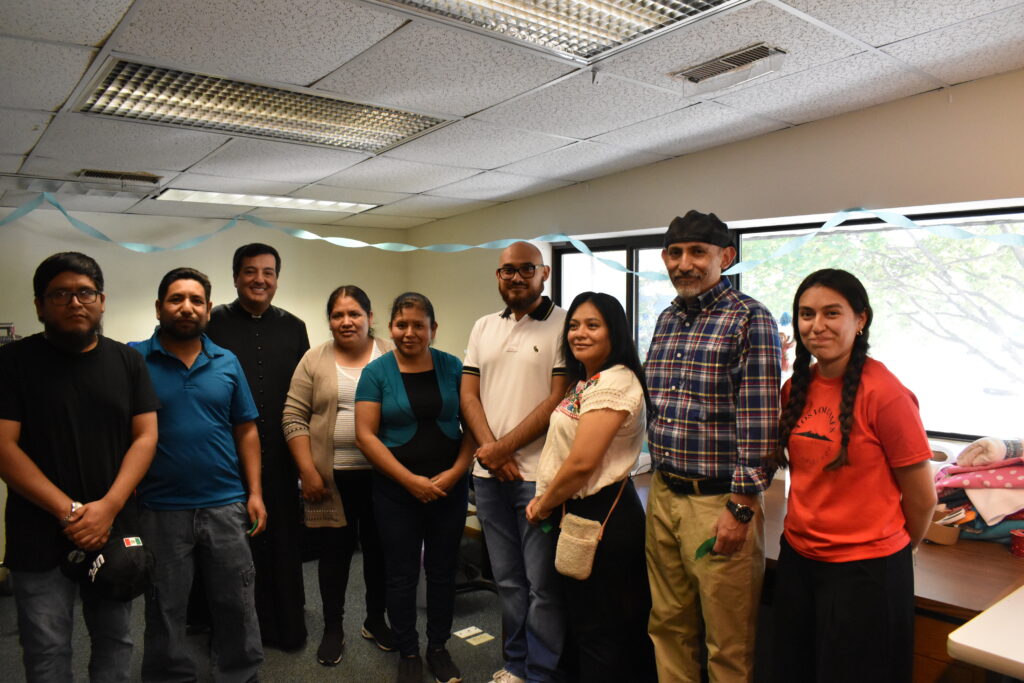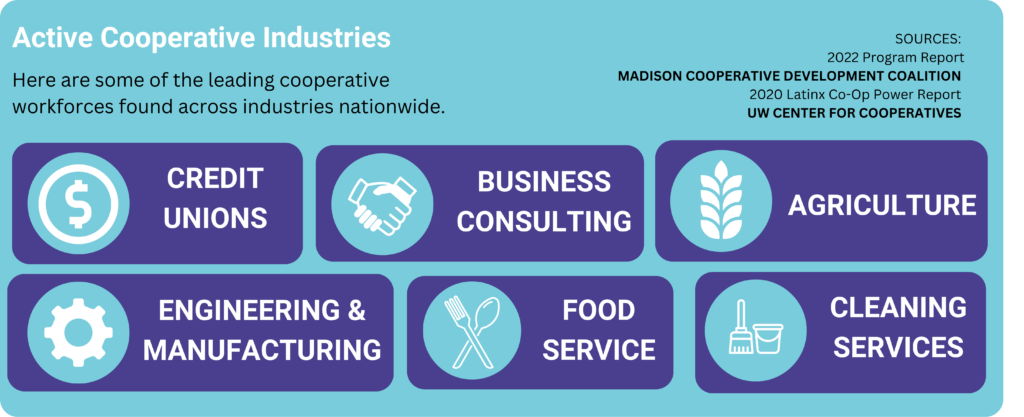Worker cooperatives – enterprises formed and maintained through a common consensus among workers – are redefining the traditional workplace. Offering an alternative to the hierarchical structures of traditional businesses, co-ops are promoting a culture grounded in open dialogue between laborers and the communities they serve. By fostering an economy mindful of workers rights and breaking the barriers to empowerment, cooperative organization guides businesses toward confronting the structural barriers preventing access to goods and services created in equitable conditions.
Wisconsinites are rapidly recognizing the state’s long tradition of cooperative organization and supporting alternative forms of business. Wider organizational networks are brought together by a shared commitment to the cooperative cause – bridging the wide appeal for cooperation across divisions of labor. Wisconsin-based initiatives, like the UW Center for Cooperatives, Worker Justice Wisconsin and the Madison Cooperative Development Coalition, are at the helm of pioneering research and support for cooperative activity across industries and underrepresented communities.

“So really, taking the ways in which we already act so cooperatively in our regular life and especially in some of these communities that the workers we’re working with have come from.” says Charity Schmidt, a cooperative development specialist and coordinating member of the MCDC.

Schmidt and the organizations she is affiliated with are responsible for creating a network of support for established and emerging cooperative organizations. The Center for Cooperatives has cultivated impactful research specifically on these enterprises through national surveys and direct involvement throughout Wisconsin. The MCDC and WJW form pathways for assisting workers by pairing co-ops with grant opportunities, business education services and incubation programs.
“When we participate in a co-op as individuals we are equal and when we participate as a co-op within the larger co-op movement, we’re also equal.” says Martin Alvarado, a Community Engagement Librarian at Madison Public Library and board member of the MCDC.
Alvarado, whose parents worked at an interpreters co-op in Mexico City, helped develop a like organization here in Madison. He is a founder and former worker-owner of the Interpreters’ Cooperative of Madison, an organization providing interpretation services in over 40 languages on a global scale. Since then, he has kept his position at the library to offer resources on cooperative education as well as foster a bridge for this method of organization to the wider community.
Spreading education on what co-ops are and how to run them is a significant factor in maintaining these organizations and inviting workers to join and create them. Through interconnection and mutual support, communities across labor industries play a part in creating and supporting worker cooperatives. Hear from these cooperatives in Madison who are making significant contributions to lead change in the community:
- Los Volcanes
- Founded by Latine textile workers and incubated by WJW, Los Volcanes is committed to correcting the injustices faced by its worker-owners in prior textile employment. By reaching out for community involvement, this cooperative is working toward a business that provides its workers fair wages and safe working conditions. The co-op got its official launch in October 2024 and hit the ground running with embroidery and textile services for the community.
“Gracias a todas las organizaciones que nos han apoyado. Estamos aquí siguiendo adelante y espero en Dios que este proyecto marque este día especial y especialmente para todos los latinos.” (Thank you to all the organizations that have supported us. We are keeping forward and I have faith in God that this project will mark a special day, especially for all Latinos.) says Founding worker-owner Juana Montes.
- Small Axe Cooperative
- Since 2023, this cooperative has brought together legal professionals to provide ethical and accessible legal services. A major component of this cooperative is based on making the law accessible to everyone. From hosting courses for services like name-changes to providing free insight into basic legal questions, or, “Stuff that if you knew the right words, you could just Google it,” says Damon Etawlyah, a founding worker-owner.
“There’s a lot of beauty and creation that can come from law and doctrine, but I can also see the disruption of it and the lack of humanization. So I wanted to go into more of a community role where I’m working with people on the ground, giving them the practical daily legal knowledge they need for their everyday problems.” says Marin Smith, a worker-owner at Small Axe.


Cover photo: Juana Montes at a table of printed and embroidered goods made by her and the cooperative. Photo by Juan Carlos Garcia Martinez.
Tile photo: Los Volcanes tables filled. Photo by Juan Carlos Garcia Martinez.
Published on Dec. 9, 2024